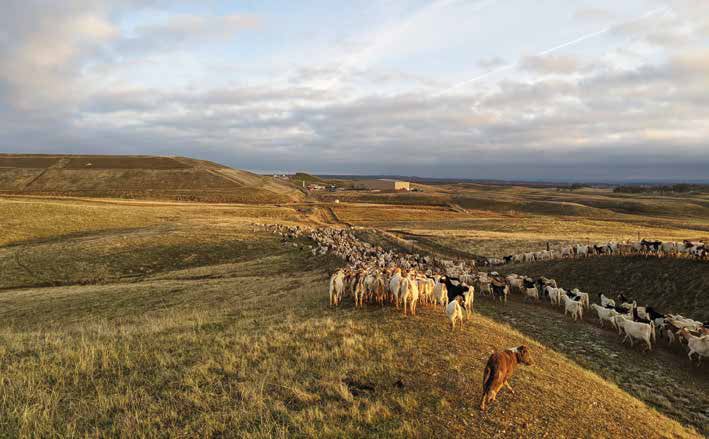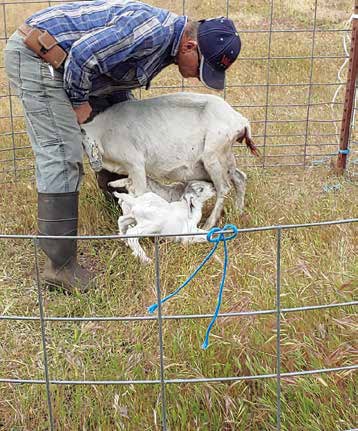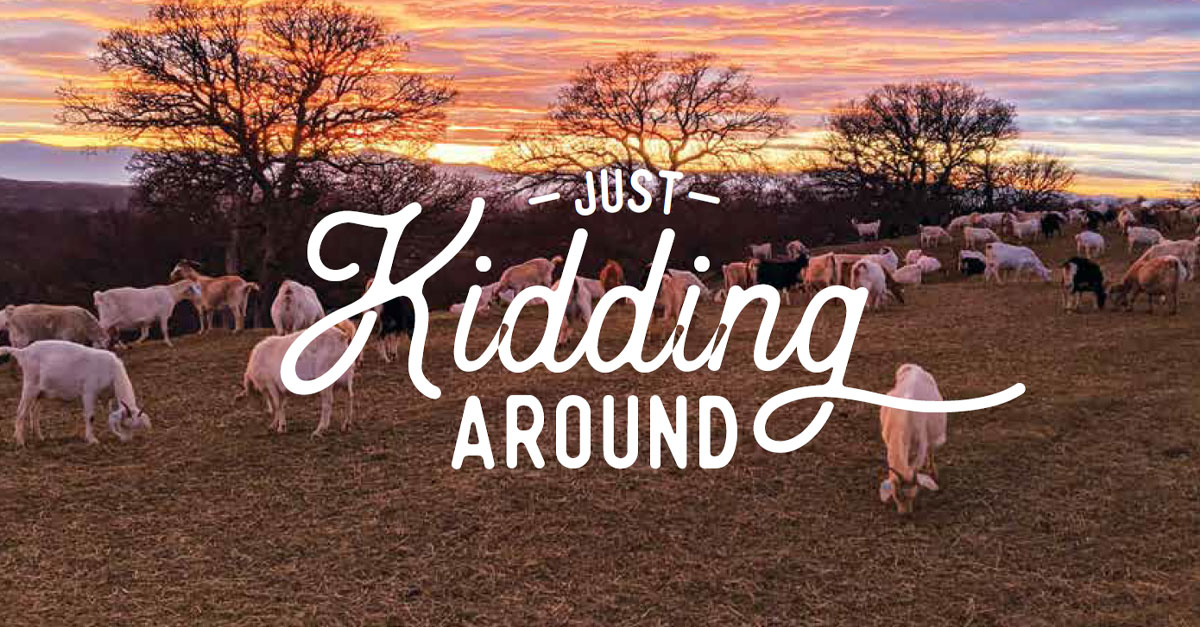Just Kidding Around
Vegetation Clean Up With Blue Tent Farms Goats…..
There’s no doubt that goats have an “it” factor, and it’s been a grand curiosity for Tim Arrowsmith of Red Bluff ’s Blue Tent Farms. Arrowsmith has been sending herds of goats across the North State and as far as San Diego for vegetation clean up. They are immensely practical for the task yet hold an almost rock star-like status wherever they go.
“I didn’t anticipate how much people from the city would love seeing them,” he says with a laugh. “It’s the darnedest thing. You can bring a goat out and people will FaceTime their friends with it.”
While his goats may show up in video calls and Instagram feeds, it doesn’t keep them from their main gig as eating machines. When they clear vegetation with their voracious appetites, they are keeping communities safer from devastating fire.

“Goats tend to eat a very wide variety of vegetation,” says Arrowsmith, “and they tend to do real well in places you can’t get to with a mower. They like a lot of invasive species that cattle and horses don’t eat.” In a time when people are pulling away from the use of herbicides, goats are a terrific alternative for weed control.
Arrowsmith started building his herd nine years ago as he saw opportunities dwindle in the mortgage business he’d been in for 15 years. He was raised as one of four boys in a farming and ranching family and says, “I decided to go back to what I had done growing up.” He and his wife agreed to a herd of 10 goats. It’s now grown to several thousand. “If they’re paying me to graze goats instead of having to sell them to make money, fine then,” he muses.
Getting started required finding the right breed of goat for the terrain they’d be sent to. Arrowsmith landed on the Kiko, a breed from New Zealand. “They are very hardy, durable goats,” he says. He drove to Oregon for his first goats and then eventually made three trips to Kansas for enough goats to fill his orders.
It wasn’t long before he started crossing his Kikos with Savannas, a South African meat goat with terrific mothering skills. “We got very selective on what we’re crossing with to get both a meat and a grazing goat,” he says. The herd is now closed, with all breeding done within to prevent disease transmission.
There are more risks to goats than disease, which is why each herd is sent out with a herdsman and a guard dog. The herdsmen come from Peru on H2-A agricultural work visas and remain with the herds 24/7. Arrowsmith has brought back many of the same herdsmen year after year and delights in the growth their families have made. “It’s really quite something to watch how they do something that can quite possibly lift future generations out of poverty,” he says, noting that herdsmen have put children through private school and into college and built homes.

While most herders will have had some experience in their home pueblos with very small herds, they aren’t used to running such large numbers of goats or working with the dogs. They all go through training before being sent out with 500-600 goats at a time and their own dogs. “It becomes a lost art after a while,” Arrowsmith says of herding. He notes that there used to be a million or so sheep grazing around Tehama County, all with shepherds tending them. “That art is lost,” he says. “It takes a whole new brave person. The experience gets lost real quickly.”
As the need for fire suppression strategies becomes more critical, goats are becoming an increasingly valuable asset. “It’s a natural progression of land management,” says Arrowsmith. He is creating contracts with cities, municipalities and water districts as well as homeowners’ associations across the state to manage their green spaces. His first contracts were with the Forest Service. “A lot of fire departments are now requiring homeowners’ associations to mitigate fire hazards on their green spaces,” he says, noting that goats do very well on these projects.
And they do it all while bringing joy to people. “They’re a curious animal by nature,” adds Arrowsmith. “They’ll stand and look at you and you’ll wonder what they’re thinking.” After a pause, he adds, “I think my herders think we’re crazy.”•
Blue Tent Farms • www.westerngrazers.com




